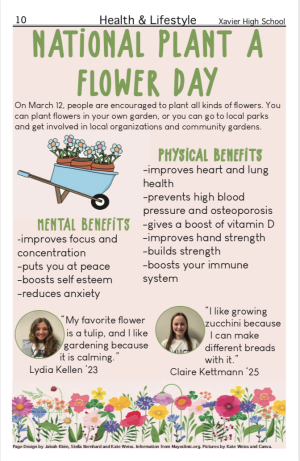GMO, friend or foe?
December 20, 2018
Someone lays in their bed at night sleeping soundly until they hear a bump come from their downstairs kitchen. They wake up with a start, jumping out of bed and slowly creeping along to the stairs. The noises in the kitchen continue and they swear they can hear faint mumbling in the distance. As they creep ever so closely to the dimly lit kitchen, they spot dark shapes moving around just outside their fridge. They round the corner and then they spot them. A gang of fruits and vegetables have gathered whispering their dark chant: “GMOs, GMOs, GMOs.” They scream and dart back to bed. After all, those are some terrifying letters.
Those letters stand for Genetically Modified Organism and they aren’t as scary as they first sound. For anyone who doesn’t know, GMOs are things that have had genes from other organisms inserted into their DNA. What first came to my mind when I heard about this was a mad scientist making some sort of super tomato that could wipe out the world’s population. However, after looking into them a bit more, I realized that GMOs are used not to harm but to help. The potential benefits of GMOs are numerous. They can be used to increase food production in poor and desolate regions of the world where they are sorely needed. The use of GMOs can also help lower the use of pesticides on plants. It does this by adding a gene to the plant that allows the plant to produce a poison that kills any bugs that eat it. Now having poison in our food sounds bad, but what’s poisonous to the bugs is harmless to humans. It’s much like how the caffeine we enjoy in our daily coffee is poisonous to many animal species. It’s simply all about perspective.
One common perspective against GMOs is why should we eat these messed up fruits when there are perfectly good ones grown organically? The problem with organic items is that more land and more pesticides are required to farm them. This isn’t a pressing issue now, but in the future with growing food production, we will need all the land we can get. Also, the use of more pesticides harms the environment, which goes against the nature friendly feel that’s associated with “organic.” GMOs can be a double edged sword as certain ones can be a hazard. GMOs are under constant scrutiny and rigorous standards of health and safety, but harmful ones are possible. The best way to avoid this is to be informed on GMOs and understand that because there’s a couple bad eggs doesn’t mean we should throw them all out.
This is a complex issue that can’t be fully explored in one little opinion article, but hopefully someone out there had their beliefs challenged and is willing to look at GMOs a little differently. They’re not as scary as they first seem and as long as we use them right and stay informed, they can be a powerful tool to grow ourselves into being the super-duper tomato I know we can be.



